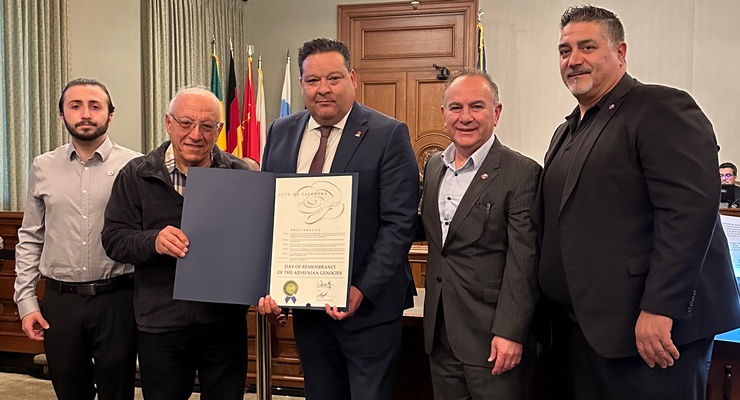 On Tuesday, December 9th, the Senate Judiciary Subcommittee on the Constitution, Civil Rights, and Human Rights, held a hearing entitled “The State of Civil and Human Rights in the United States.â€
On Tuesday, December 9th, the Senate Judiciary Subcommittee on the Constitution, Civil Rights, and Human Rights, held a hearing entitled “The State of Civil and Human Rights in the United States.â€
The hearing was held days after two grand juries chose not to indict police officers involved in the deaths of Michael Brown and Eric Garner, and one day after the Department of Justice released long awaited updates to the profiling guidance. As Chair of the Congressional Asian Pacific American Caucus, Rep. Judy Chu (CA-27) submitted a statement for the record.
In her statement, the Congresswoman detailed incidents of hate violence in the aftermath of 9/11, and discussed the rise in hate crimes and xenophobia against American-Muslims, government surveillance and mapping, and profiling by law enforcement. She urged passage of the End Racial Profiling Act, and expressed strong disappointment regarding the loopholes that still exist in the DOJ’s revised profiling guidance. The loopholes allow bias-based profiling at airports and at the border.
Rep. Chu’s statement is included below:
Senate Judiciary Committee
Subcommittee on the Constitution, Civil Rights and Human Rights hearing on
“The State of Civil and Human Rights in the United Statesâ€
December 9, 2014
2:30 P.M. Dirksen Senate Office Building Room 226
Written Testimony submitted by Congresswoman Judy Chu (CA-27)
Chairman Durbin, Ranking Member Cruz and Members of the subcommittee, thank you for holding this timely hearing on the state of civil and human rights in our country.
It has been nearly five months since Michael Brown was shot and killed on a street in Ferguson, Missouri. Two years before his death, almost to the day, the Sikh community was shaken to the core when a gunman opened fire at a Sikh gurdwara in Oak Creek, Wisconsin, killing six people and injuring others. These events are symbolic of the uncomfortable truth that racism and xenophobia are ever-present in the United States.
This hearing comes at a crucial time. It is colored by the recent rise in hate crimes, the release of long overdue profiling guidance from the Department of Justice (DOJ), and the news that the Muslim community is still being watched by our government. These events are continuous reminders that many communities of color are feeling that they are not being treated fairly under the law.
So much has changed since that unthinkable day on September 11, 2001, when two planes crashed into the World Trade Center. Among the impacts of 9/11 that we can never forget, we must include the ugly hate crimes that occurred and continue to occur.
That is why, as Chair of the Select Committee on Hate Crimes, I introduced AJR 64 in the California State Legislature, a resolution which condemned acts of violence and bigotry against Muslim Americans, Arab Americans, Sikh Americans and South Asian Americans. I’m proud to say that this resolution got a unanimous vote.
Yet as great as that moment was, I was quickly brought down to earth. After a Sikh American spoke at a press conference celebrating the resolution, he drove home, and stopped at a gas station in Los Angeles. He paid for gas and heard a commotion. As he stepped outside, he sees a man in his car, face beet red, sticking out his middle finger, and shouting uncontrollably, “F__ you! Take that rag off your head, and go back where you came from!â€
Too many tragedies followed over the years.
In 2011, two Sikh men in Elk Grove, northern California were shot down while they were out on an afternoon stroll. They were not murdered for money; they were murdered for their turbans.
One year later, the shooting of a Sikh gudwara in Oak Creek, Wisconsin left six dead and several others injured.
And in September of this year, Linda Sarsour, a prominent Muslim community activist and her colleague, were chased down the street in New York by a man who threw a trash can at them and told them, “I’m going to cut your head off and see how your people feel about that.â€
These stories show us that we still have a long way to go as a nation to end the hate violence and xenophobia in the United States.
A dynamic of hostility and fear still surround many Muslim communities, and has resulted in troubling levels of violence and a rising tide of xenophobic rhetoric. The number of hate crimes targeting Muslim Americans increased by nearly 50% between 2009 and 2010, and since then, the number remains high. In New York City alone, there were 15 incidents of anti-Muslim hate crimes in 2014, compared with seven last year; 12 took place between July and August of this year. In 2012, half of Americans reported discomfort with women in burqas, mosques in their neighborhoods, or Muslims praying in airports.
Such xenophobia has found its way into the political sphere, where public officials have used divisive rhetoric and fear mongering in political discourse. Such rhetoric was seen in the March 10, 2011, Congressional hearing held by the House Homeland Security titled “The Extent of Radicalization in the American Muslim Community and that Community’s Response.†The hearing, spearheaded by Congressman Peter King (R-NY), claimed Muslim communities warranted suspicion and special scrutiny.
The rise of hate crimes in South Asian, Muslim, Sikh, Hindu, Middle Eastern, and Arab communities is compounded by the fact that these communities remain targets of discriminatory government policies, such as profiling and surveillance by law enforcement agencies at multiple levels. I was disturbed to learn that the New York Police Department (NYPD), with help from the Central Intelligence Agency (CIA), had a massive surveillance program targeting Muslim college students across the Northeast. It was also revealed that the NYPD’s surveillance program spread to places where Muslims eat, shop, and worship. Yet, there was no evidence of wrongdoing by any of the targeted individuals and the program failed to yield a single terrorism investigation or lead. NYPD recently decided to dismantle the very unit that targeted Muslim student groups, but this is only the first step as other biased policing programs remain in place.
In addition, the mapping of Muslim American communities is widely being used by federal law enforcement. The Federal Bureau of Investigation (FBI) is authorized to “identify locations of concentrated ethnic communities†if the locations will “reasonably aid in the analysis of potential threats and vulnerabilities.†National security must be a priority for this country, but it cannot serve as a justification to arbitrarily target people simply based on their faith or appearance.
When entire communities are cast as being suspicious by law enforcement, there are serious consequences for our nation. A study by the Muslim American Civil Liberties Union found that NYPD spying both interfered with religious life and expression, and chilled freedom of speech. Furthermore, such tactics build mistrust between law enforcement and the communities they target. Muslim Americans are expected to report incidents of hate crimes to the very same law enforcement agencies that are conducting surveillance of their communities. We must end the massive surveillance programs, and instead work to build relations based on understanding and trust with the Muslim American community.
As Chair of the Congressional Asian Pacific American Caucus (CAPAC), I am working to prevent profiling within our communities. Policies at the legislative and administrative level still allow profiling to occur at airports, at the border, and at the hands of state and local law enforcement. For many years now, I have continually pressed Attorney General Eric Holder to update the Department of Justice’s (DOJ) 2003 Guidance on the Use of Race by Federal Law Enforcement to include a ban on profiling based on religion and national origin, and to close the loopholes that allow law enforcement to profile at airports and at the border.
Just yesterday, Attorney General Eric Holder released much anticipated updates to the DOJ’s profiling guidance. This comes at a crucial time when communities of color are increasingly feeling that they are being treated differently by law enforcement and before the law. These changes are a positive step forward in that religion and national origin are included in the definition of profiling, and that data collection and enhanced training will be required by law enforcement.
And Congress must not shy away from its responsibility to address racial profiling and our broken criminal justice system. We must pass the End Racial Profiling Act, which was introduced by Congressman John Conyers and Senator Ben Cardin. This important piece of legislation would play a significant role in prohibiting law enforcement agencies from engaging in racial profiling, and would ensure accountability by offering sanctions and remedies for violations of law.
In addition, the updated profiling guidance retains concerning loopholes for the FBI, Transportation Security Administration and Customs and Border Patrol that would allow law enforcement to continue using biased-based profiling. These entities will still have a license to profile racial, religious and other minorities at the border under certain national security contexts. Law enforcement’s practice to map entire communities based on their race, ethnicity and religion will still continue. These gaps are particularly troublesome to American Muslim and South Asian communities, who are increasingly subject to this type of surveillance. Our work is not done here. We must continue to press for meaningful changes through implementation of the new guidance.
There is a tide turning in our country. Communities of color are increasingly feeling as if they are being left out and treated unequally before the law. But, Ferguson and protests around the country tell us that these communities are speaking up and demanding real change. As we have more and more persons from diverse backgrounds speak out against injustices as well as racially and religiously motivated attacks and rhetoric, it is my hope that we will have a country that will be inclusive of all people, where no one feels unsafe, unequal, or un-American because of the color of their skin or their faith.














 0 comments
0 comments


